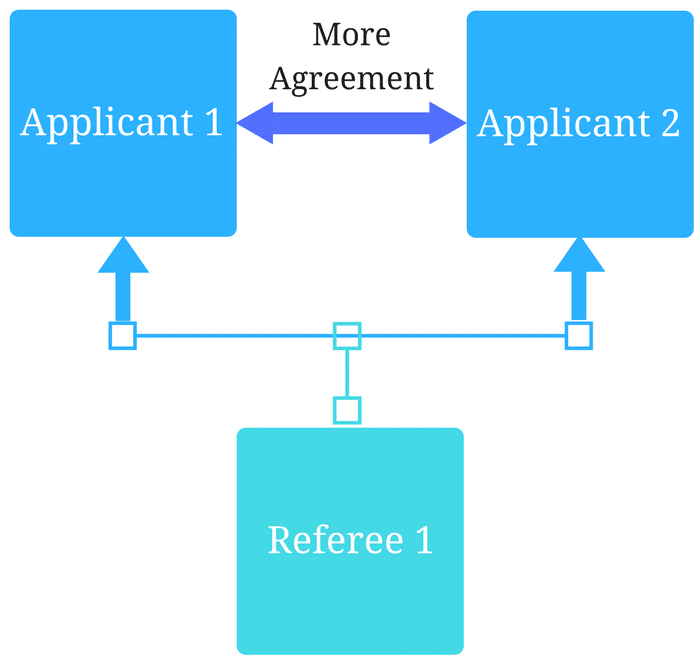The Importance of Durable Skills in Today’s Workforce

December 5, 2024
In today’s fast-changing job market, academic knowledge alone is no longer enough to succeed. Employers are looking for skills that go beyond technical expertise—skills that transcend roles and industries.
These are known as durable skills.
Unlike technical skills, which evolve or may become outdated, durable skills like communication, teamwork, and critical thinking remain essential. But how do we teach these skills, and why are they so important for students entering the workforce?
This week on the Holistic Success Show, we welcome Dr. Anika Cloutier, Assistant Professor with the Faculty of Management at Dalhousie University. Anika’s research focuses on leadership, exploring who becomes a leader, how different leadership styles emerge, and how mental health, gender, and personal life affect leadership outcomes.
Dr. Kelly Dore and Dr. Cloutier discussed the importance of durable skills—abilities that help learners excel across industries by focusing on soft skills like teamwork, problem-solving, and adaptability, which remain valuable no matter where life takes them.
What exactly are durable skills?
Durable skills are abilities that stay relevant over time and in any environment.
These skills are not limited by job roles or industries. Instead, they help people succeed across various situations. One clear example of a durable skill is communication. Whether it’s in business, medicine, or engineering, the ability to communicate is always in demand. Unlike content knowledge, which changes as new information becomes available, durable skills like communication allow individuals to navigate professional landscapes regardless of trends.
These skills are not new—they are deeply rooted in the core purpose of higher education. They have always been central to academic success, but the focus on grades or technical knowledge sometimes overshadows their importance.
How do durable skills impact professional success?
Durable skills are also crucial to professional success, and it’s very obvious when they’re missing. Think about situations where communication breaks down in the workplace or when teamwork fails. It’s often these moments of frustration and confusion that reveal how essential durable skills are.
Whether it’s resolving conflicts, sharing ideas, or understanding colleagues’ perspectives, these skills allow people to perform effectively in any professional context.
Durable skills also help people reach their goals more efficiently. They improve collaboration and productivity, ensuring tasks are completed smoothly. The ability to communicate well, work with others, and problem-solve makes a huge difference in how well teams function, no matter the industry.
How can higher education institutions teach durable skills?
Many educational programs already incorporate durable skills, but often they aren’t highlighted explicitly. One way to rectify this is to clearly include these skills in course objectives.
Rather than focusing solely on content knowledge, professors can emphasize skills like communication, teamwork, and critical thinking as key outcomes of their courses. By making durable skills a formal part of the learning process, institutions help students recognize their value and how to apply them in professional settings.
Another key factor is providing students with opportunities to practice these skills in meaningful ways. As universities move toward larger class sizes and more online learning, there is a risk of losing valuable interpersonal interaction. Face-to-face engagement is crucial for developing social skills like empathy and teamwork—something that AI simply cannot replicate. Creating spaces where students can connect and collaborate is essential to building durable skills.
Why do durable skills matter in the workplace?
As the world continues to evolve, so do the challenges professionals face. Graduates entering the workforce today will likely encounter problems that we can’t even predict. Durable skills prepare them for this uncertainty. These skills equip them to think critically, adapt, and work well with others—no matter what new challenges arise.
By emphasizing the importance of durable skills, higher education institutions help students develop the tools they need to succeed beyond their first job. These skills will serve them throughout their careers, no matter how the professional landscape changes.
Final thoughts
Durable skills are essential for success in today’s professional world.
They help individuals achieve their goals, adapt to new environments, and collaborate with others, regardless of industry or role. By teaching these skills explicitly and providing opportunities for students to practice them, higher education institutions are preparing students not just for their first job but for long-term success in their careers.
Dr. Cloutier’s insights remind us that durable skills are more than just “nice-to-haves”—they are the foundation of success in any workplace. If you haven’t subscribed to the Holistic Success Show, now’s the time. Stay tuned for more insightful discussions!
Related Articles

How interviews could be misleading your admissions...
Most schools consider the interview an important portion of their admissions process, hence a considerable…
Reference letters in academic admissions: useful o...
Because of the lack of innovation, there are often few opportunities to examine current legacy…
